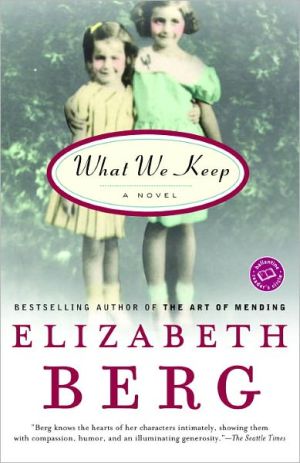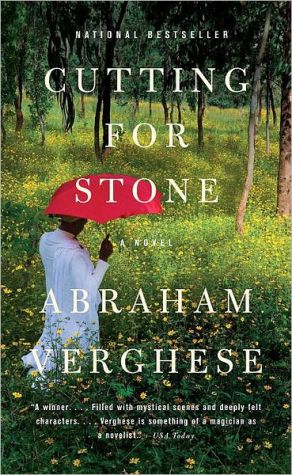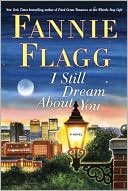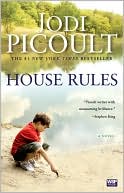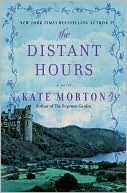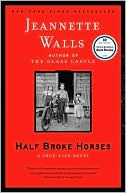What We Keep
Do you ever really know your mother, your daughter, the people in your family? In this rich and rewarding new novel by the beloved bestselling author of Talk Before Sleep and The Pull of the Moon, a reunion between two sisters and their mother reveals how the secrets and complexities of the past have shaped the lives of the women in a family.\ Ginny Young is on a plane, en route to see her mother, whom she hasn't seen or spoken to for thirty-five years. She thinks back to the...
Search in google:
In this rich new novel by the beloved bestselling author of "Talk Before Sleep" and "The Pull of the Moon," a reunion between two sisters and their mother reveals secrets and complexities in the lives of the women in a family. Ginny Young is on a plane, going to visit the mother she hasn't seen or spoken to for thirty-five years. She thinks back to the summer of 1958, when she was twelve years old and a series of dramatic events divided her family, separating her and her sister from their mother, seemingly forever. Moving back and forth in time between the girl she once was and the woman she's become, Ginny confronts painful choices in a woman's life—even as surprising secrets are revealed about the family she thought she understood.Publishers Weekly"I don't like my mother. She's not a good person." So declares Ginny Young on a trip to California to visit her mother, Marion, whom she hasn't seen in 35 years. Ginny is only making the trip as a favor to her sister, Sharla, who has called to say she's awaiting the results of a cancer test. In flashback, Berg (Talk Before Sleep) revisits the events of the girls' childhood and the moments when their mother's problems began to reveal themselves. One night, Ginny and Sharla overhear their mother screaming at their father about her unhappiness and telling him that she never wanted children. Then she walks out with no explanations, returning briefly a few months later to explain that she's not coming back. The following years bring occasional visits that are impossibly painful for all concerned and so full of buried anger that the girls decide to curtail them altogether. When Sharla meets Ginny (now a mother herself) at the airport, and the two see their mother again, there are surprises in store, but not especially shocking ones. The reader, in fact, may feel there is less here than meets the eye: Marion's flight is never made psychologically credible. Berg's customary skill in rendering domestic details is intact, but the story seems stitched together. Crucial scenes feel highlighted rather than fleshed out, and Ginny's bitterness disappears into thin air as she reaches a facile, sentimental conclusion about her mother's needs. BOMC selection; author tour. (May)
Outside the airplane window the clouds are thick and rippled, unbroken as acres of land. They are suffused with peach-colored, early morning sun, gilded at the edges. Across the aisle, a man is taking a picture of them. Even the pilot couldn't keep still—"Folks," he just said, "we've got quite a sunrise out there. Might want to have a look." I like it when pilots make such comments. It lets me know they're awake.\ Whenever I see a sight like these clouds, I think maybe everyone is wrong; maybe you can walk on air. Maybe we should just try. Everything could have changed without our noticing. Laws of physics, I mean. Why not? I want it to be true that such miracles occur. I want to stop the plane, put the kickstand down, and have us all file out there, shrugging airline claustrophobia off our shoulders. I want us to be able to breathe easily this high up, to walk on clouds as if we were angels, to point out our houses to each other way, way, way down there; and there; and there. How proud we would suddenly feel about where we live, how tender toward everything that's ours—our Mixmasters, resting on kitchen counters; our children, wearing the socks we bought them and going about children's business; our mail lying on our desks; our gardens, tilled and expectant. It seems to me it would just come with the perspective, this rich appreciation.\ I lean my forehead against the glass, sigh. I am forty-seven years old and these longings come to me with the same seriousness and frequency that they did when I was a child.\ "Long trip, huh?" the woman next to me asks. "Oh," I say. "Yes. Although . . . Well, I sighed because I wish I could get out. You know? Get out there and walk around." She looks past me, through the window. "Pretty," she says. And then, "Of course, you'd die." "Oh, well. What's not dangerous?"\ "Beats me," the woman says. "Not food. Not water. Not air, not sex. You can't do anything. Well, maybe put your name on the list for Biosphere." We smile, ruefully. She's pretty, a young blond businesswoman wearing a stylish navy-blue suit, gold jewelry, soft-looking leather heels now slipped off her feet. At first, she busied herself with paperwork. Now she's bored and wants to talk. Fine with me. I'm bored, too.\ "Do you ever think that this is the end of the world?" I ask. "I mean, don't get me wrong—" "Oh, I know what you mean," she says. "I do think about that. Dying planets, how . . . unspecial we are, really. Just the most current thing in the line since paramecia."\ The flight attendant stops her cart beside us, asks if we'd like a drink. This seems petty, considering the content of our conversation. Still, I request orange juice; the woman beside me says she'd like a scotch.\ "You know what?" I tell the flight attendant. "I think I'll have a scotch, too." I have always wondered who in the world would want a cocktail on an early morning flight. Now I know: people with a load on their minds that they would like very much to lighten.\ After my seatmate and I have pulled down our trays and set up our impromptu bar, I say, "I don't even like scotch." "Me neither." She shrugs, takes a sip, grimaces. "But I really hate flying. Sometimes this helps." I smile, extend my hand. "I'm Ginny Young." "Martha Hamilton." "You live in California?" "Yeah. San Francisco. You?" "I live in Boston. I'm going to visit my mother. She lives in Mill Valley." "Nice. How long since you've seen her?" I do some math, then answer, "Thirty-five years." Martha turns toward me, stares. I know her scotch is pooled in her mouth.\ I shrug. "I don't like my mother. I'm not ashamed to say that. She's not a good person. She did some things . . . Well, she's not a good person." Whenever people I've met tell their mother horror stories, I save mine for last. It's the best, because it's the worst.\ "So . . . why are you going to see her?" "It was my sister's idea. She thinks she's sick. Not my mother—her." "Is she?" "Don't know. She's waiting for some test results. But she wanted to go and see our mother. Just . . . in case. You know. Unfinished business that she feels she needs to attend to." Martha breathes out. "Jesus. I'm sorry." "Well." She touches my arm. "Are you all right?" "Me? Yes! It's . . . this is old. It's so old. I didn't intend ever to see my mother again, and I was perfectly comfortable with that. I won't see her after this visit; I know that. I'm just doing this for my sister. Even though I don't really think she's sick. She can't be."\ Martha nods, cracks an ice cube with her teeth, then looks at me, one eyebrow raised. "Right," I say. "I know." "I'll tell you something," Martha says. "I was in a cemetery last week, walking my dog. You're not supposed to walk your dog there, so when I heard someone coming, I hid behind this big marker. I saw a woman stop just a few graves away. She knelt down and started talking out loud. She was apparently talking about one of her kids who was giving her a really hard time, and then she said, "I didn't do that to you, Ma, did I? Did I?" And then she lay down and just started crying. She cried so hard! It was one of those things where the grief is so raw, you can't help yourself—you start crying, too. And when I started crying, my dog started barking. The woman looked up and saw me, of course. She got all embarrassed—jumped up and wiped her face, started straightening her clothes and rummaging around in her purse for something or other. And I felt terrible. It was terrible to have a dog there, those rules are absolutely right. I apologized, but I still felt like a jerk.\ "All the way home, I wondered what that woman was crying about, what she had remembered. I wondered if other daughters talk to their mothers when they visit their graves, whether if, when my mother dies, I will. Seems like a good party question, doesn't it?—What would you say at your mother's grave? Well, maybe not a party question. But an interesting one. At least you'll have the chance to speak to her in person."\ "Right," I say, although what I'm thinking is, there's nothing I want to tell my mother. I'm only going for Sharla. I love my sister; I'm finished with my mother, have been for a long time. Not for nothing did I sit in therapists' offices going through a forest's worth of Kleenex.\ "Where does your sister live?" Martha asks. "Texas. San Antonio. She'll be at the airport waiting; her flight gets in twenty minutes before mine." "Has she seen your mother in all this time?" "No." "Wow. This will be some meeting." "I know," I say, and drain what's left of the scotch. Then I squeeze the plastic glass to see how far I can bend it. Not far: it cracks in my hand. I put it in the throw-up bag, fold the top over, place it neatly in the center of my tray table. I don't want to talk anymore. I lean back, look out the window. I have my reasons, I tell myself—and Martha, too, in case she's picking up on my thoughts—she's from California, after all; they do stuff like that. But I do have my reasons. I absolutely do.\ **********\ "Miss?" the flight attendant asks. "Breakfast?" I startle, then smile and nod yes to the fat slices of French toast she is offering me. I am probably the only one in the world who likes airline food. I appreciate the inventive garnishes, the only-for-you serving sizes. I like the taste of the salad dressings. When the entrée is something like pizza, I think, well, isn't that the cutest thing. Naturally, I don't admit this to anyone.\ Martha has opted for the cheese omelet, and when I watch her cut it neatly in half, I wish I'd gotten one too. She shrugs after her first bite, the physical equivalent of "Yuck." I smile, shrug back, pour the thick artificial maple syrup over my French toast. It looks delicious.\ "I saw a row of three across open back there," Martha says, after she's eaten most of her breakfast. "I think I'll go on back and stretch out for a while."\ "Okay." "Unless you were thinking of that, too. In that case, we could flip for it." "No, this is fine," I say. "I'll have more room, too. Anyway, I'm not going to sleep."\ "Really? Any plane trip over an hour, I have to sleep. Otherwise I get stir-crazy. Once I brought letters to read on an airplane. You know, the kind of thing you keep, thinking sometime you'd really like to read them again, but then you never do. I brought along this huge stack of letters from old boyfriends. I took them out and read them all. They passed the time all right, but it was so embarrassing—they made me cry. I'll never do that again! Better to go to sleep and embarrass yourself by drooling." She stands, opens the overhead bin and pulls down a pillow and a blanket, heads down the aisle.\ I know what Martha means about old letters. One rainy day after my younger daughter had gone to school, I went down into the basement and got out my battered cardboard box of love letters. I brought it up to the bedroom and dumped it out on the bed. Then I remember putting on this old purple cardigan that had a rip at the elbow—it was a little cold—and I sat and read those letters. All of them: sweet, morning-after notes full of misspellings that Tom Winchell had taped onto my bathroom mirror; fountain-penned missives from Tim Stanley, who went on to study theology, and I know why—so he could stand in a pulpit and talk, talk, talk. I read things that made me get soft at the center again, that made me stare out the window and sigh. I got absolutely lost in reverie; I felt really out of it for hours after I'd finished reading those letters. I almost called one of my old boyfriends, but I could anticipate what would happen. I would pour out a rush of sentiment—"Now, this doesn't mean anything, but do you rem ember, do you remember the incredible love we felt for each other, do you remember when we stayed out all night to watch the sun come up by the river and you put your jacket around me and I had a cut on my lip and you kissed me so gently it made me think I could never, never leave you?" I'd say something like that and the now-balding Larry Drever, holding the phone at the desk from which he sells life insurance, would say, ". . . Who is this?"\ So I know it's dangerous to reenter the past. Especially when things come back to you as strongly as they do to me. I'm extremely good at remembering, have had this ability since I was very young. Give me one rich detail, and I'll reconstruct a whole scene. Say "Dairy Queen," and I'll recall a night in high school when I was there with a bunch of friends and a cloud of gnats hung around Joe Antillo's head and he reached up to swat them away and spilled his root-beer float all over himself and Trudy Jameson, who was wearing a blue shirt tied at the waist, and jeans with one back pocket torn off and her silver charm bracelet and "Intimate" perfume. She had a cold that night. A few days earlier, her eight-year-old brother Kevin had fallen off his bicycle and cut his knee so badly he'd required seven stitches, half of which he removed later that night with his sister's manicure scissors—"just to see what would happen," he told his horrified parents when they drove him back to the emergency room. "How do you reme mber all these details?" people ask me all the time. I don't know how. I just do. One image leads to another, then another, as though they're all strung together. And in any given memory I summon up, I become again the person I was then—I feel the weather, I feel everything. I lose the person I am now to some other, younger self.\ It can hurt you, remembering—the shock of reentry, the mild disorientation, the inevitable sadness that accompanies a true vision of the past. Still, right now, staring out the window at the land far below me, realizing I have no idea where I am, I want nothing more than to do absolutely that. I want to go back to the time when I started to lose my mother, and search for clues as to why and how. I suppose it's about time. I lean my seat back. Close my eyes. Begin.
\ Publishers Weekly\ - Publisher's Weekly\ "I don't like my mother. She's not a good person." So declares Ginny Young on a trip to California to visit her mother, Marion, whom she hasn't seen in 35 years. Ginny is only making the trip as a favor to her sister, Sharla, who has called to say she's awaiting the results of a cancer test. In flashback, Berg (Talk Before Sleep) revisits the events of the girls' childhood and the moments when their mother's problems began to reveal themselves. One night, Ginny and Sharla overhear their mother screaming at their father about her unhappiness and telling him that she never wanted children. Then she walks out with no explanations, returning briefly a few months later to explain that she's not coming back. The following years bring occasional visits that are impossibly painful for all concerned and so full of buried anger that the girls decide to curtail them altogether. When Sharla meets Ginny (now a mother herself) at the airport, and the two see their mother again, there are surprises in store, but not especially shocking ones. The reader, in fact, may feel there is less here than meets the eye: Marion's flight is never made psychologically credible. Berg's customary skill in rendering domestic details is intact, but the story seems stitched together. Crucial scenes feel highlighted rather than fleshed out, and Ginny's bitterness disappears into thin air as she reaches a facile, sentimental conclusion about her mother's needs. BOMC selection; author tour. (May)\ \ \ \ \ Library JournalAfter indulging in a spending spree at Tiffany's, Samantha faces up to her divorce and tries to learn how to make her own happiness. Copyright 2000 Cahners Business Information.\\\ \ \ Library JournalBerg (Joy School, LJ 12/96) excels at writing novels about the close personal relationships between women. As this new work opens, Ginny is flying to California to join her sister in a meeting with their mother, whom neither daughter has seen for 35 years. Ginny uses her travel time to reflect upon her memories of the summer when her mother withdrew from the family and became an outsider in her daughters' lives. Berg's precise, evocative descriptions create vivid images of Ginny's physical world, while Berg's understanding and perception are an eloquent testimony to Ginny's emotional turmoil. Berg cleverly examines the roles and relationships of mothers and daughters and reveals how truth, forgiveness, and understanding are possible in healing intergenerational rifts between women. Highly recommended and sure to be popular. [Previewed in Prepub Alert, LJ 1/98.]Caroline M. Hallsworth, Cambrian Coll., Ontario\ \ \ \ \ Kirkus ReviewsThe prolific Berg's fifth novel (Joy School, 1997, etc.) pays an unremarkable visit to that overworked territory where mothers and daughters visit to blame and explain, this time in the story of a daughter on her way to meet the mother she hasnþt seen for 35 years. Berg has an easy style and good ear, which makes for agreeable storytelling, but, here, the story itself is less impressive. The trouble is that the plot fails to seem plausible or compelling, draining the emotion from what a supposedly dramatic meeting, with attendant explanatory revelations, of a mother and her two estranged daughters. The narrative is told in flashbacks younger daughter Ginny as she flies to San Francisco. There, she joins sister Sharla, who has persuaded Ginny to come along only by hinting that sheþs terminally ill and wants to make her peace with their mother. As for Mother, she seems a parody of a 1950s Mom: baking from scratch, dressing immaculately, even hosting a Tupperware party. Dad's also a stereotypeþa well-meaning man who works hard at a boring job, but isnþt sensitive (he doesn't get it, for instance, that his wife wants to go dancing). The two girls are happy, though: They love Mom's cooking and the way she helps them create nifty projects. And yet one summer, when glamorous free spirit Jasmine, allegedly on the run from her rich but abusive husband, moves next door, their lives fall apart. Mom gets restless and decides to leave Dad and the girls to become an artist. Which she does, and isnþt forgiven until they all meet up again, realizing then just how unhappy Mom was. But why Mom had to make so extreme a gesture is never persuasively explained. An easyread, but intellectually and emotionally lite-fare, despite the suggestions of profundity ("I now believe we owe our mothers and our daughters the truth"). (Book-of-the- Month selection; author tour)\ \
